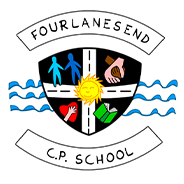Geography
Our Intent
We aim to inspire a love for Geography by helping students understand the world, their role in it and its diverse environments, places and cultures. We encourage curiosity and exploration, from their local surroundings to the wider world. Through a balanced curriculum, engaging lessons, and dynamic hands-on activities—such as map reading, fieldwork, and comparison studies—we foster a strong understanding of both human and physical geography, equipping students with the skills they need for the future.
Knowledge Facts
The answers to all of our ‘Big Questions’ form our Knowledge Facts. This is the knowledge that we think our children need to remember in future years, well beyond when they have left their year group and when they have left Fourlanesend C P School. We have ‘Recall’ in all lessons, quizzing the children about past weeks, past topics and even past years learning.
-
Geography - Big Questions
download_for_offline
download_for_offlineGeography - Big Questions
- Geography - Forever Facts download_for_offline
download_for_offlineGeography - Forever Facts
Implementation
- Geography lessons are planned coherently to build children’s understanding progressively from their local area and slowly into the wider world.
- All lessons are planned using skills progressions so that knowledge is taught horizontally across the year group; skills are progressed vertically across the key stage, resulting in diagonal learning.
- Lessons develop the children’s use of geographical knowledge, understanding and skills to enhance their locational and place knowledge.
- All Geography lessons follow the National Curriculum and are linked to the topic begin taught, allowing the children to build curiosity, ask questions and investigate answers in a variety of ways.
- Opportunities are provided for children to develop their skills and fieldwork using maps and atlases (both physical and digital).
- Fieldwork allows children to apply their geographical skills in a real-life setting and explore their local area and the features within it.
- Where possible, Geography lessons make links to other subjects such as History, Science and Maths.
- Use of the school’s world map allows children to visually see the location of their areas of learning and make links to the areas of learning in other year groups.
- We use our ‘recall’ time at the start of topic and Geography lessons to develop the children’s long-term memory on specific Geography Forever Facts.
Strategies for supporting pupils with Special Educational Needs and Disabilities in Computing lessons:
-
Geography
download_for_offline
download_for_offlineGeography
Opportunities for Speaking and Listening
In geography lessons, children can develop vital speaking and listening skills by engaging in discussions, presentations and interactive activities that help pupils express their ideas confidently. In each unit, one lesson is dedicated to developing oracy skills, allowing children to use geographical language to explain concepts, express their understanding and communicate ideas effectively with their peers.
Recommended Links
Impact
We aim to inspire a love for Geography by helping students understand the world, their role in it and its diverse environments, places and cultures. We encourage curiosity and exploration, from their local surroundings to the wider world. Through a balanced curriculum, engaging lessons, and dynamic hands-on activities—such as map reading, fieldwork, and comparison studies—we foster a strong understanding of both human and physical geography, equipping students with the skills they need for the future.
Assessment
Every Geography lesson has a question as its title. By the end of unit, children are expected at the very least to remember facts that will enable them to answers these questions. We have just introduced ‘Showstoppers’ – a way children can demonstrate this geography knowledge creatively in their books. This will be a combination of written knowledge, facts and pictorial representations of their understanding.
In addition to these Showstoppers, pupils at Fourlanesend have regular quizzes whereby the teacher will present a knowledge fact quiz based on subjects that they have previously covered. This ensures that children can still remember the facts they learned in previous year groups.
- Geography - Forever Facts download_for_offline

